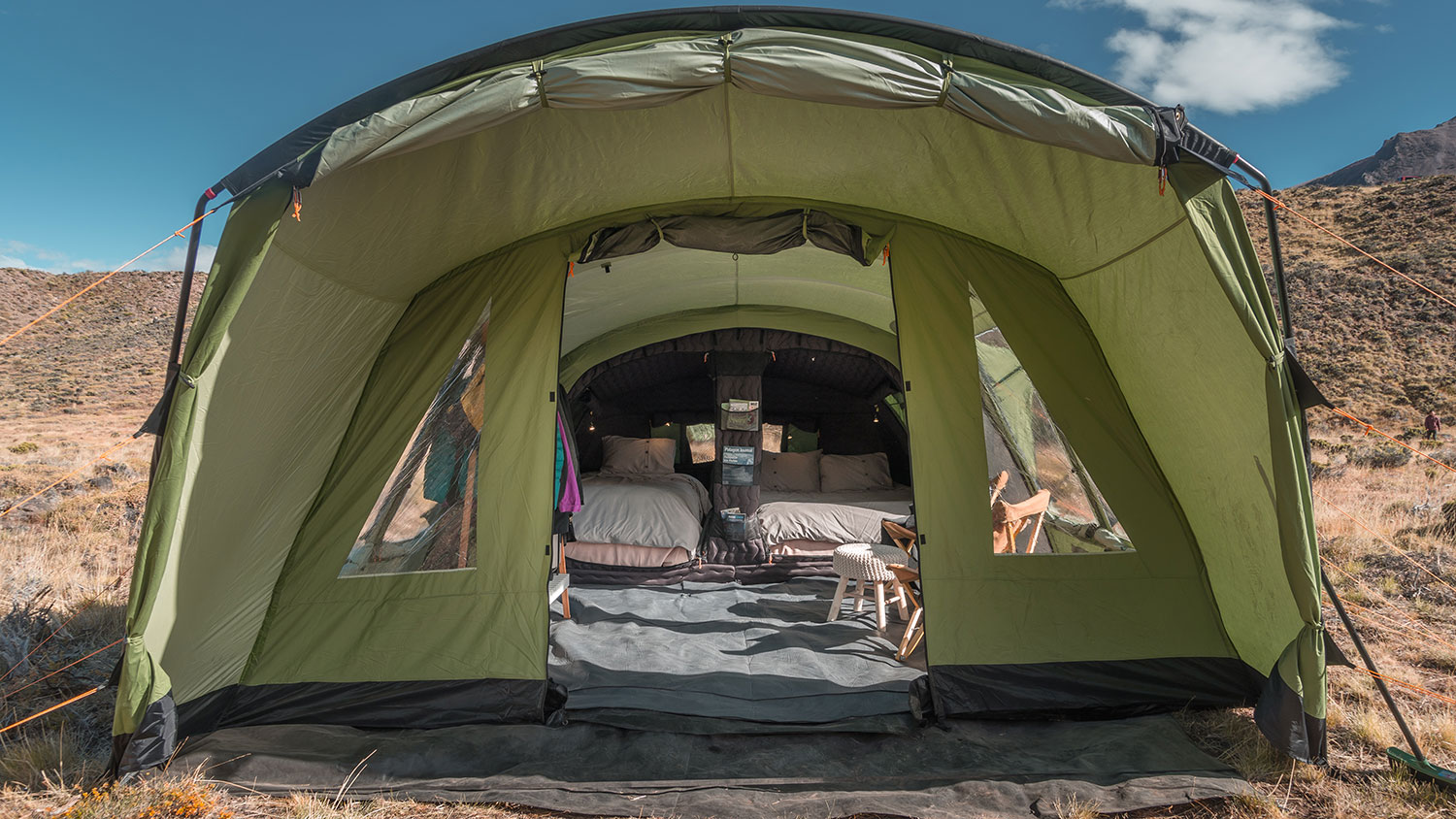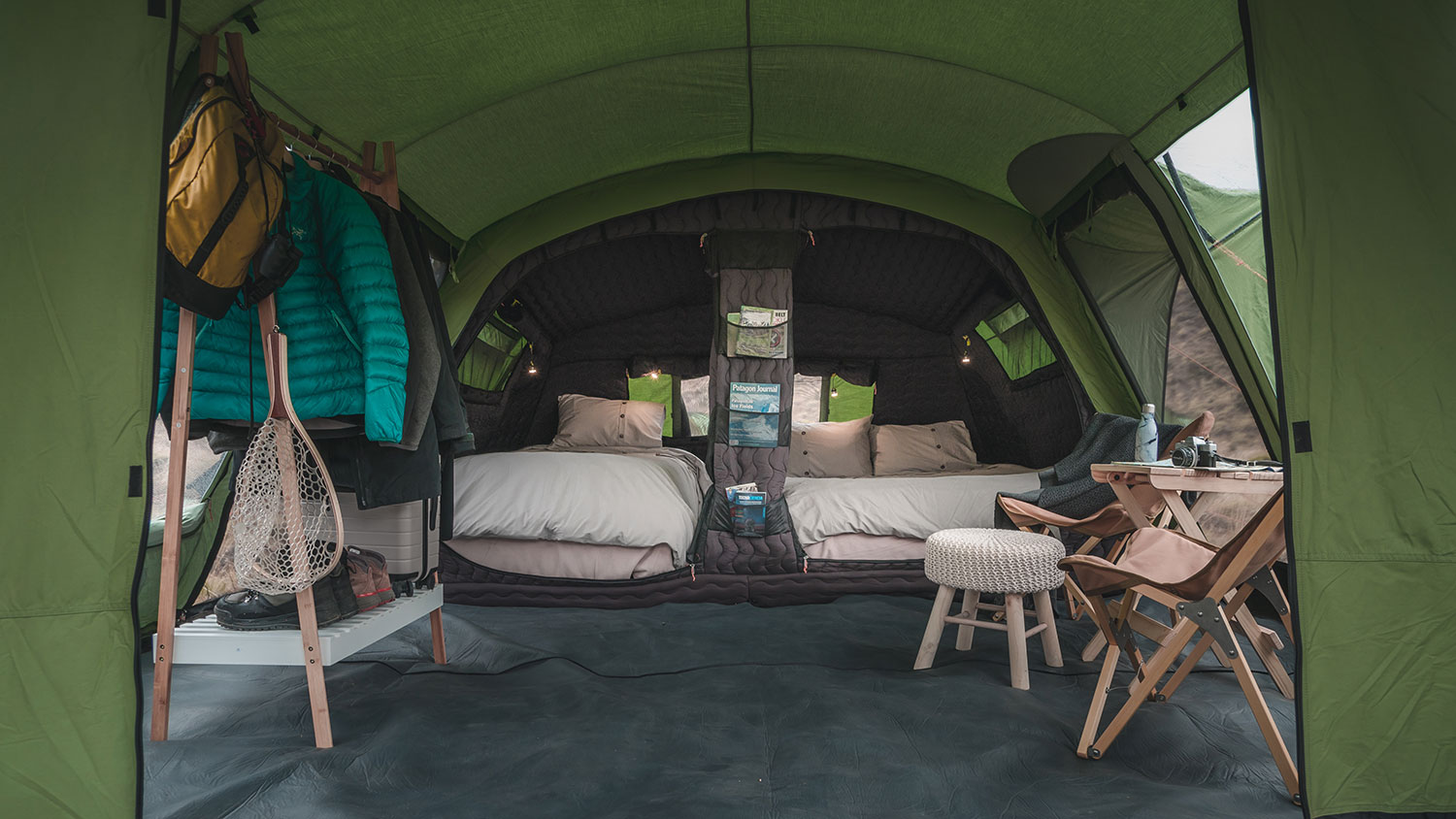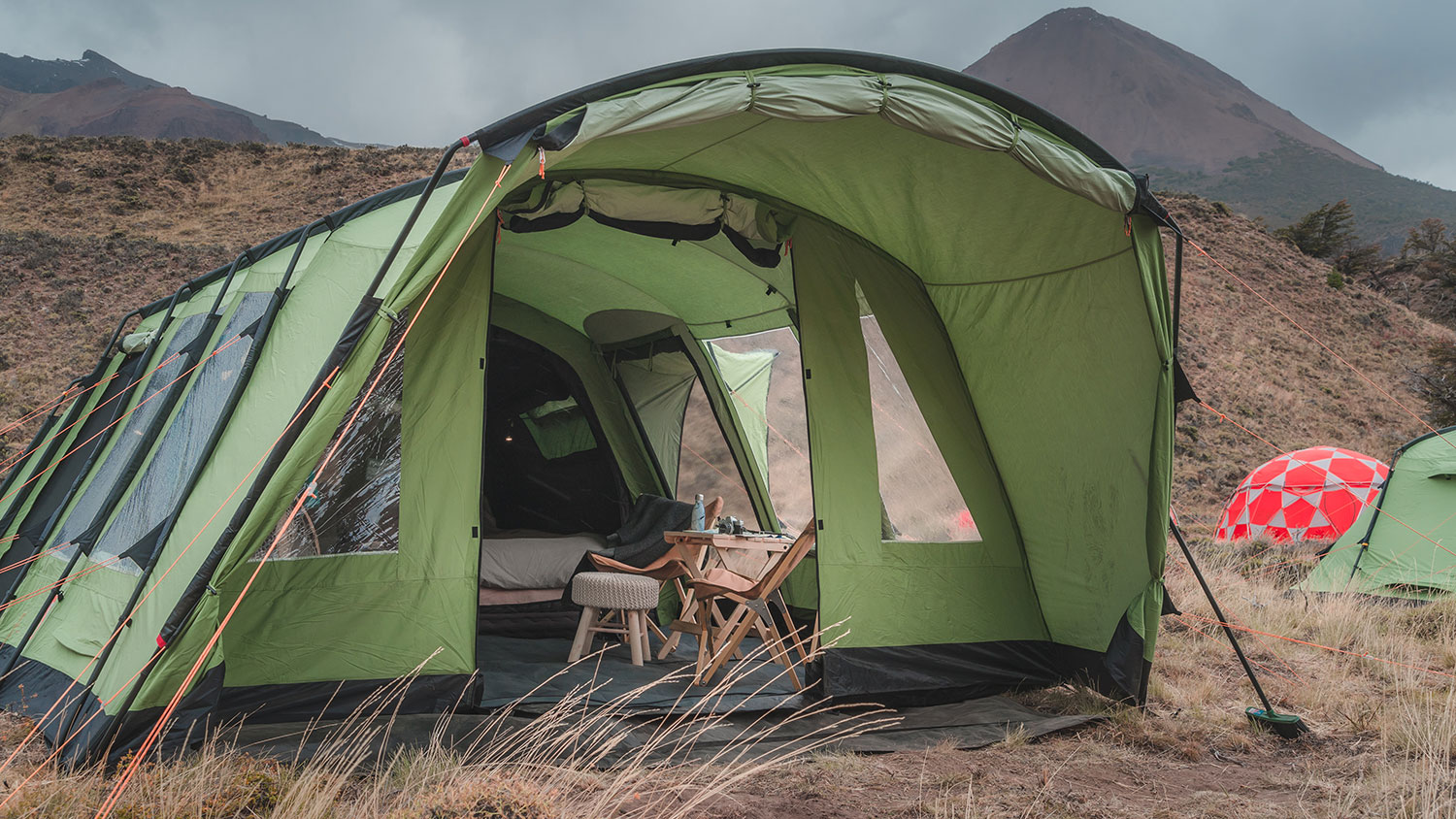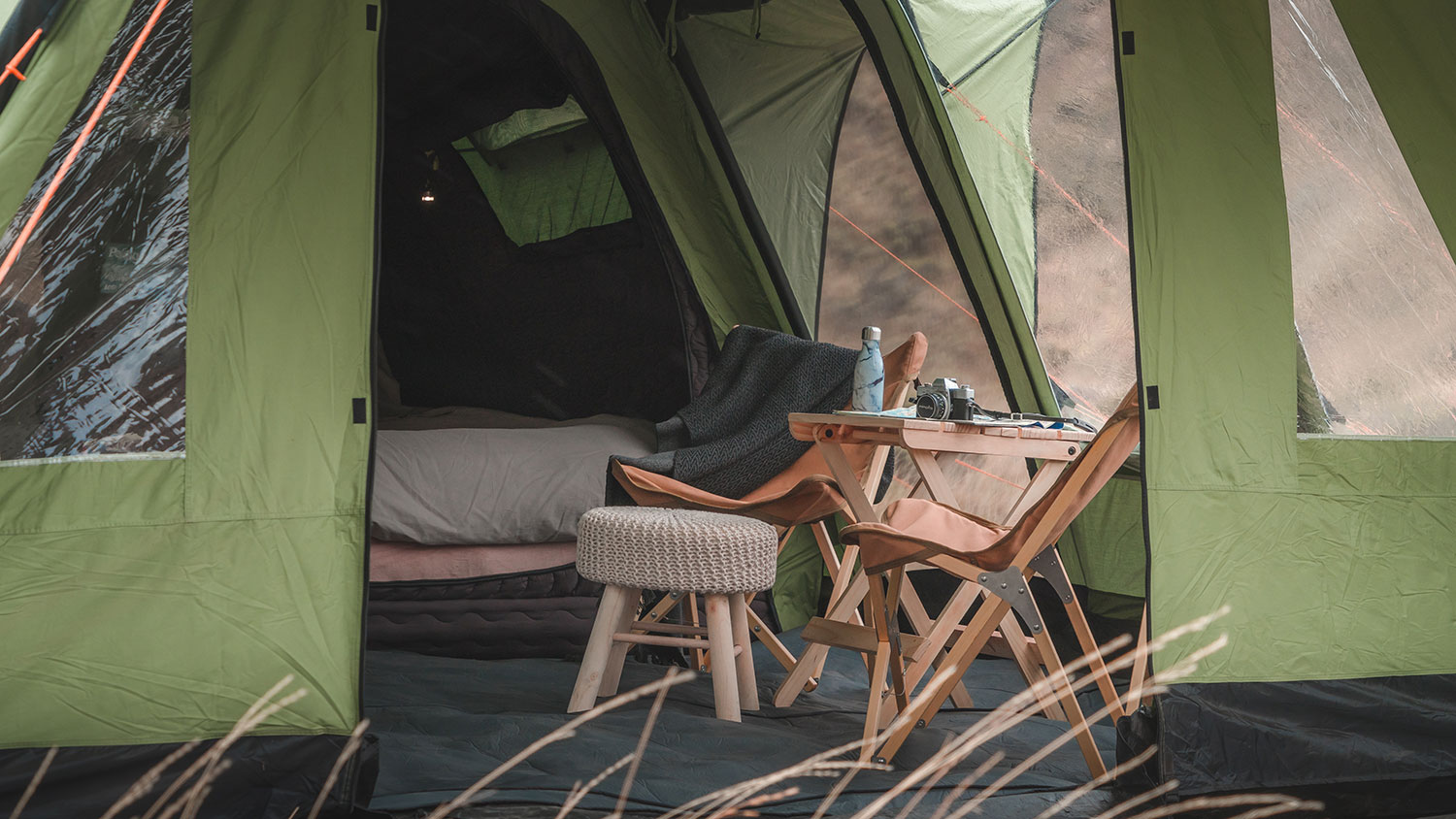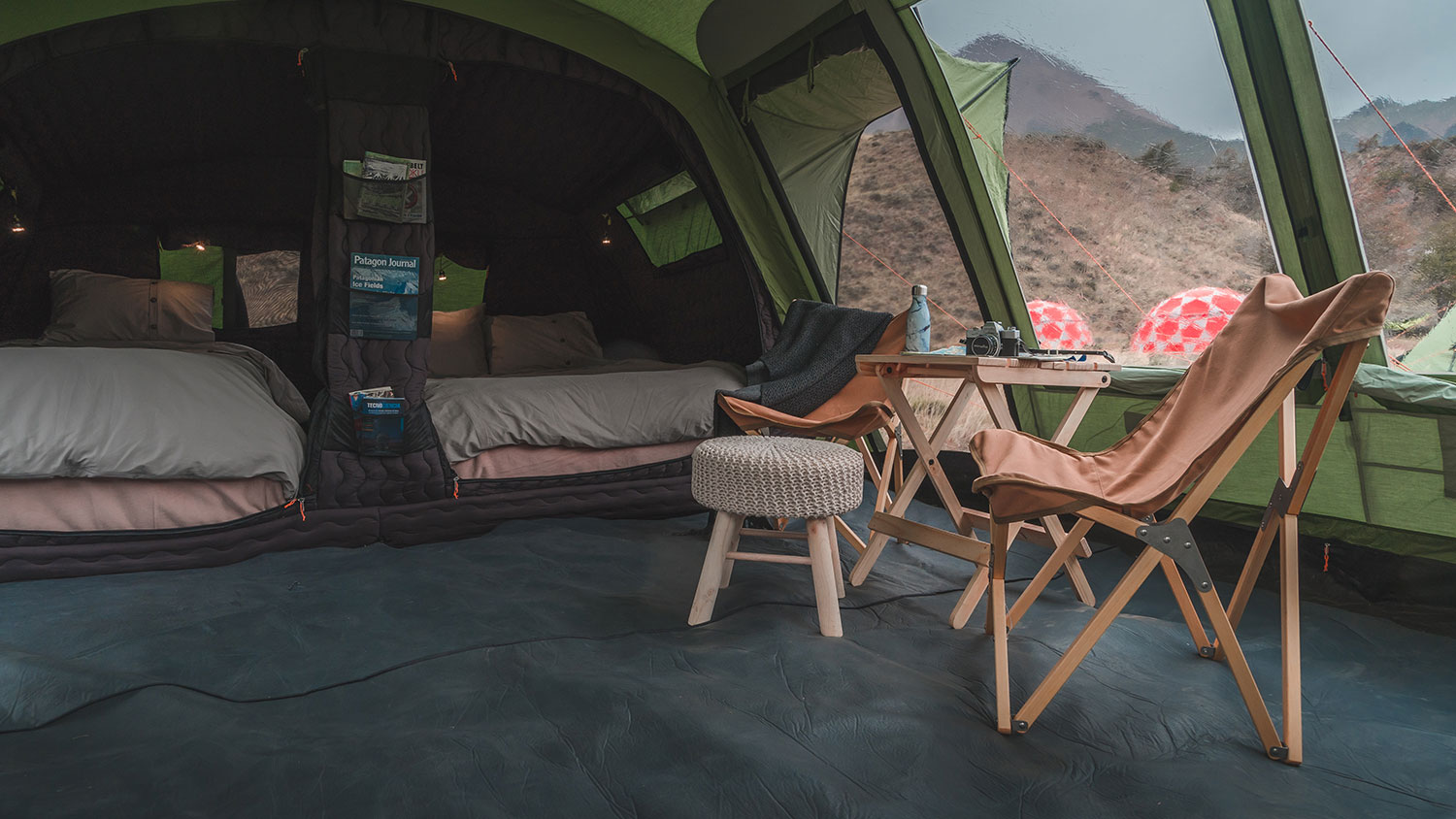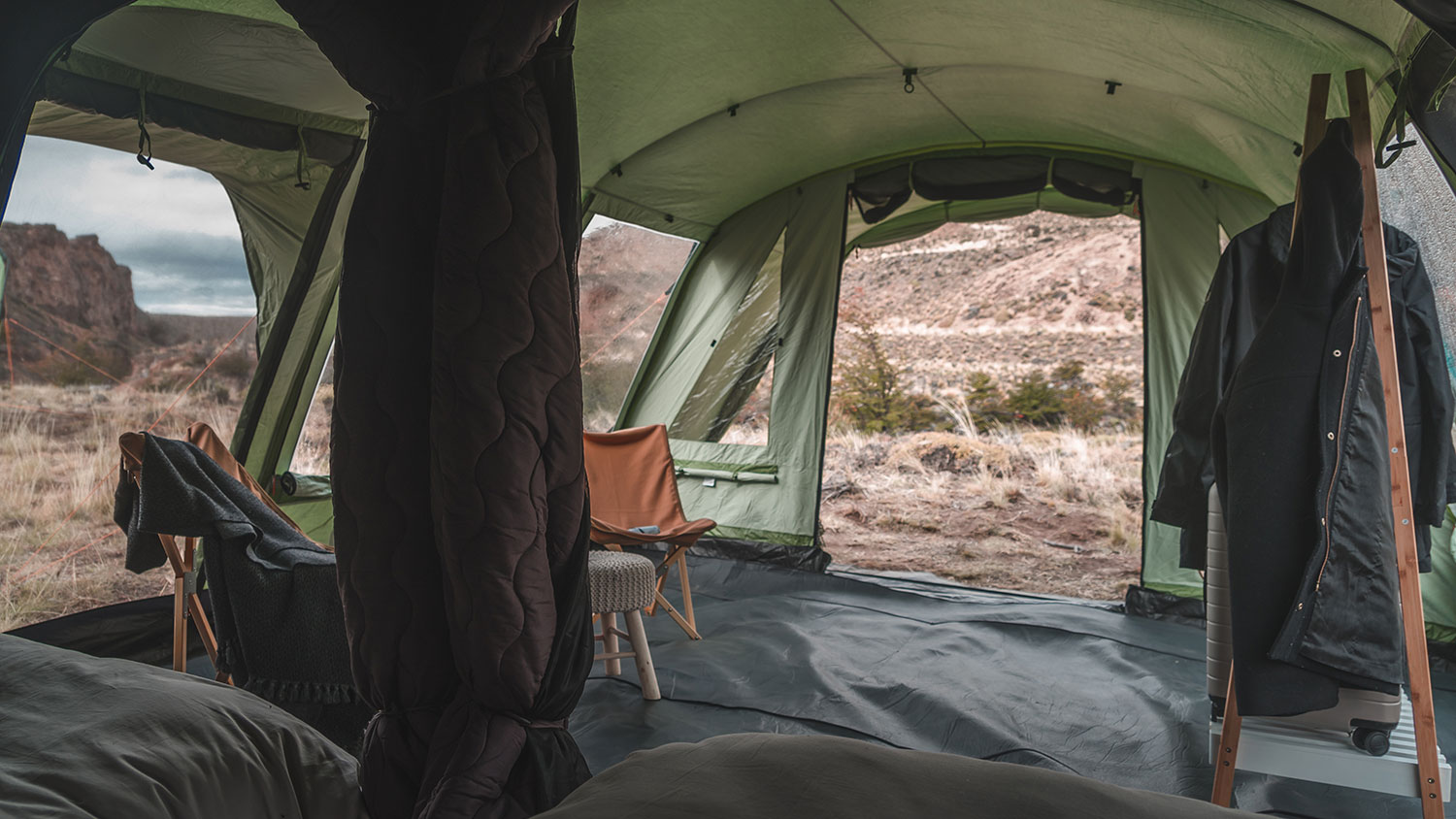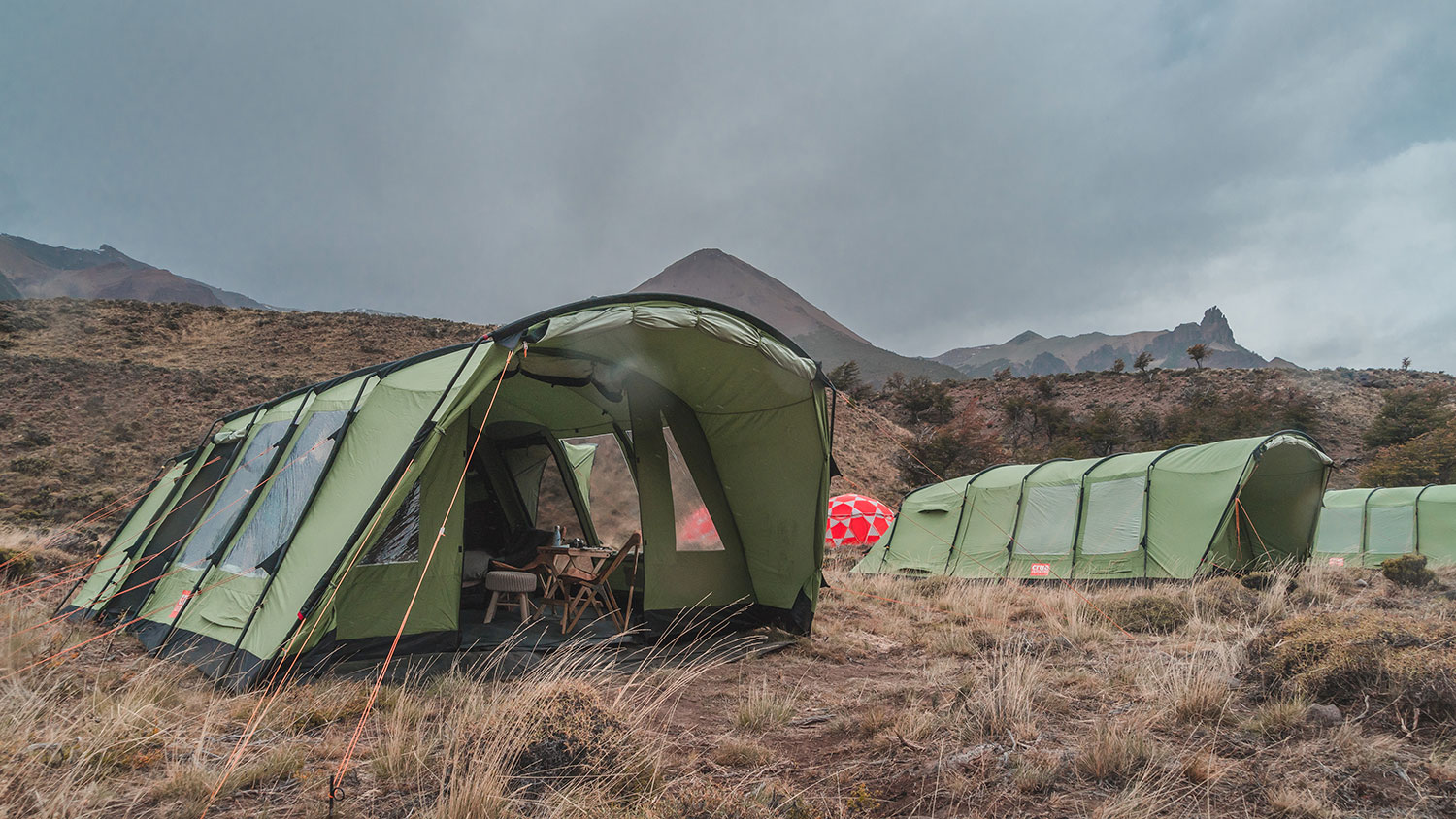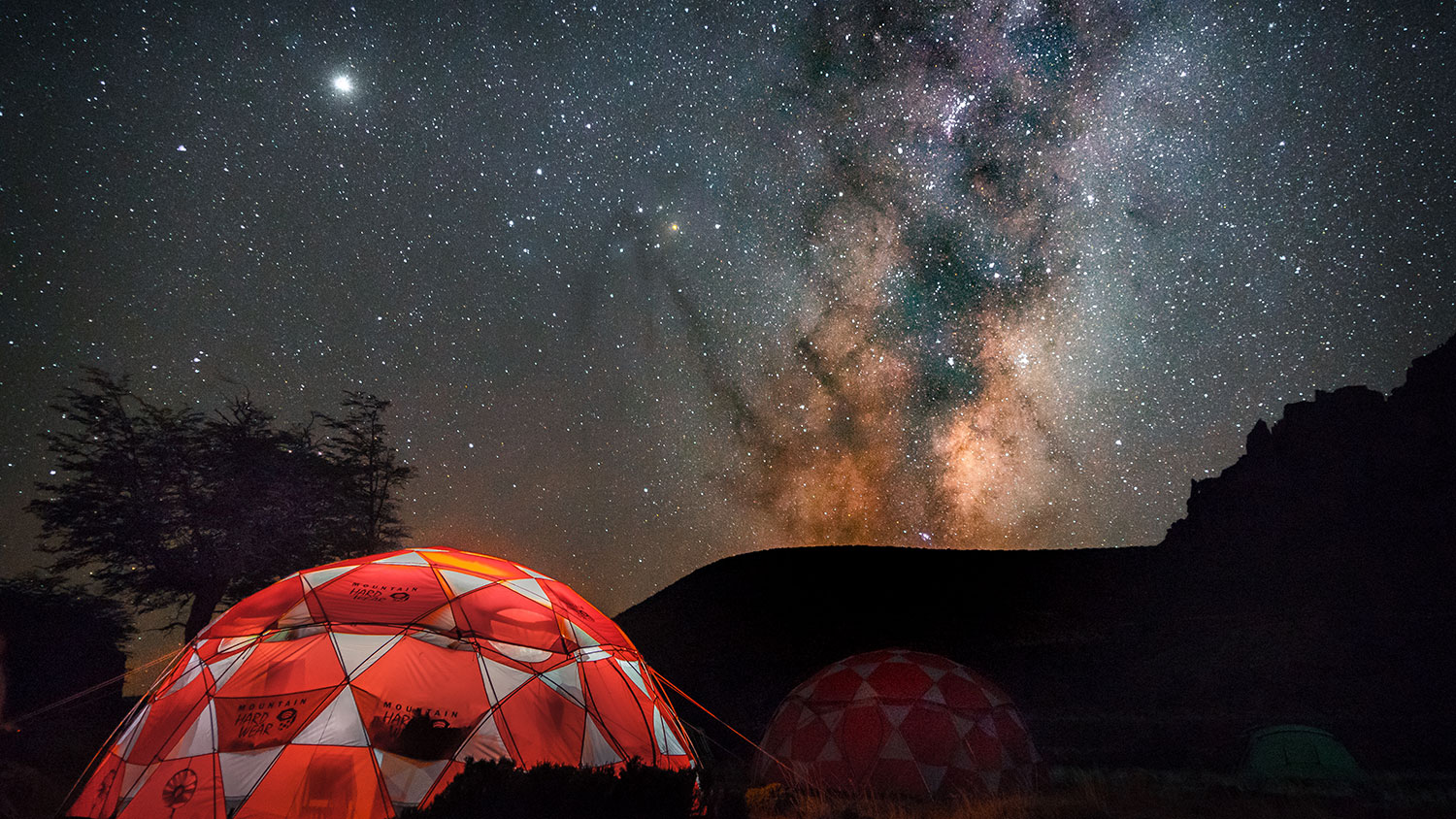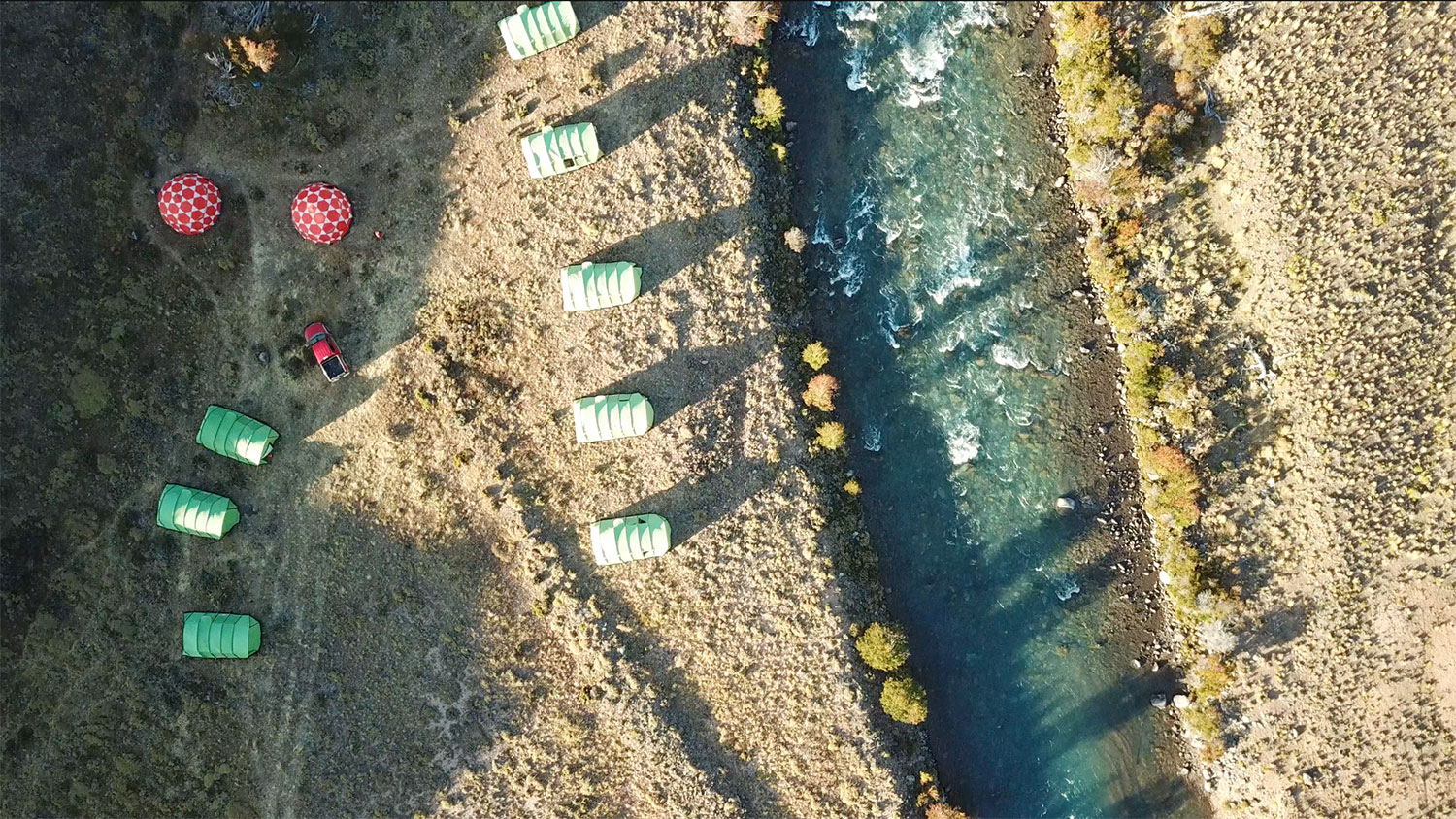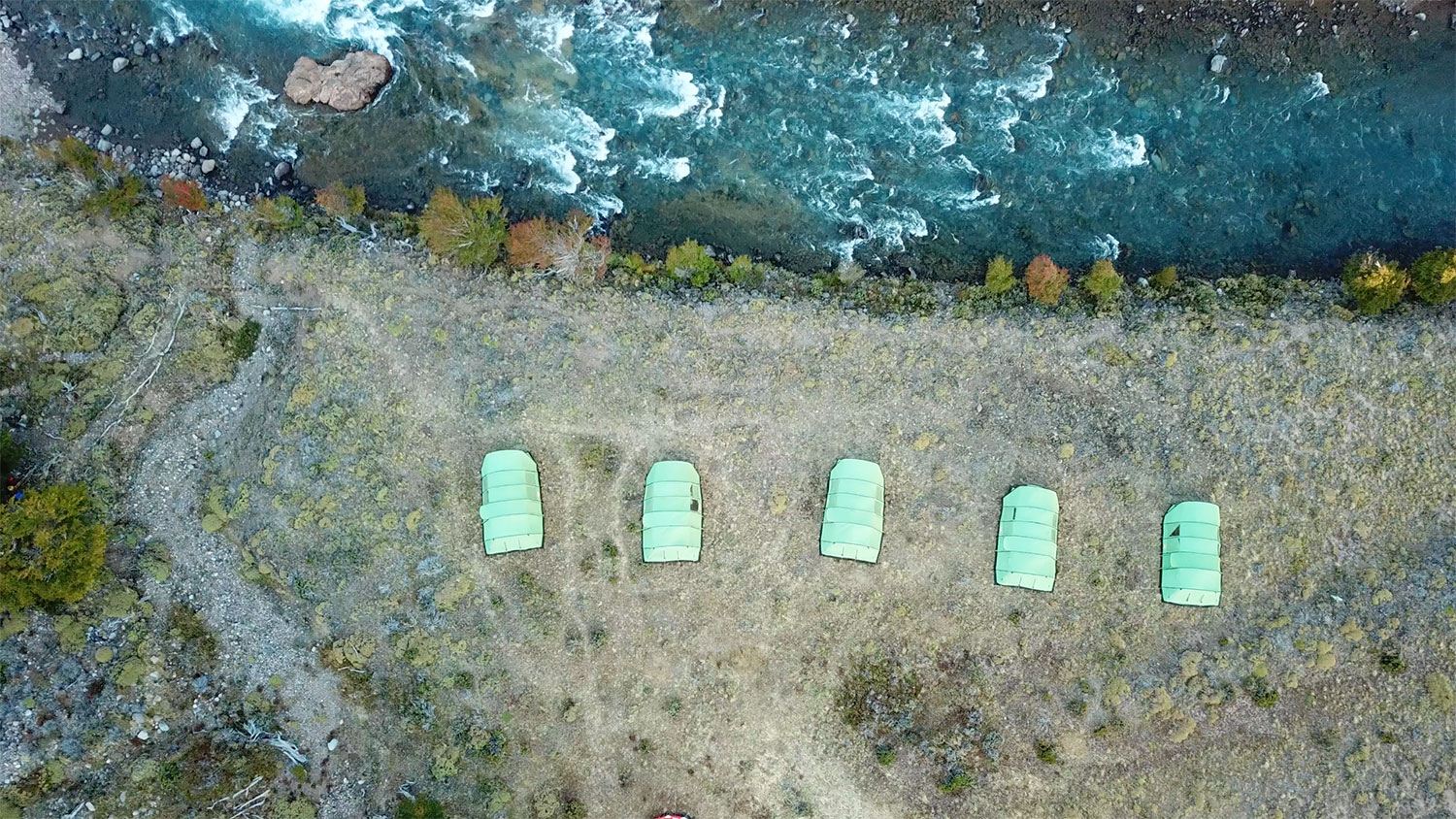We’re not too fond of the term “glamping.” We still love the idea though: a weekend of blissful disconnection, somewhere far from the city with only the most essential amenities at your fingertips. Now, one upscale travel provider is promising to take prospective glampers far, far off-grid to some of the most remote corners of the most remote destinations in South America.
Outpost is a new initiative from Upscape that promises travelers “a fleeting chance to see a place like no one has or will.” The company’s new camps pull inspiration from the concept of traditional outposts which are often considered a last connection to civilization. The first such camp, Outpost Patagonia, will feature a pop-up encampment in the remote Aysén region of Patagonia. While most visitors to the famed region visit Torres del Paine, Outpost Patagonia takes guests to the banks of the brilliant Río Jeinimeni.
The surrounding Jeinimeni Reserve stretches from Argentina to Chile’s Ice Fields. It’s a wild, rugged, and largely uninhabited area that few travelers will — or can — ever see. The camp is ideally situated amid four unique ecosystems, from high, craggy peaks and the iconic steppes of South America down to pristine deciduous and evergreen forests.
Central to the Outpost experience, of course, is the concept of complete disconnection. Each tent features rustic luxury amenities, but zero technology. Set your out-of-office autoresponder and don’t expect any Facebook messages for a while. The real get is what’s outside, however. Private guides lead guests on a variety of unique outdoor experiences, including photography workshops, fly fishing, horseback riding, trekking, and paddling.
For 15 years, Santiago-based Upscape has led bespoke, experiential tours through South America’s Southern Cone, including Uruguay, Argentina, and Chile. Their tours cover some of the continent’s most iconic experiences (wine-tasting, skiing, and off-grid exploration) in destinations like Montevideo, Buenos Aires, and Santiago. The company’s catalog is growing fast with other Outpost destinations in the works; Outpost Atacama will launch later this year.
For 2019, astronomy enthusiasts can book a stay at Outpost Elqui to coincide with next year’s total solar eclipse in Chile’s Elquí Valley. A similar tour, Outpost Lakes, will be available in 2020 to witness the total solar eclipse near Pucon, Chile.
Outpost Patagonia is now accepting reservations. Pricing depends on what sort of experience you’re seeking. Fly fishing camps start at $5,290 per person, while photography-centric outings run $6,260 per person. Well-heeled travelers can splurge on a private rental of the entire camp for $7,500 per night. You’re welcome to bring up to 11 of your closest friends, but it’s up to you to figure out how to get them there.
